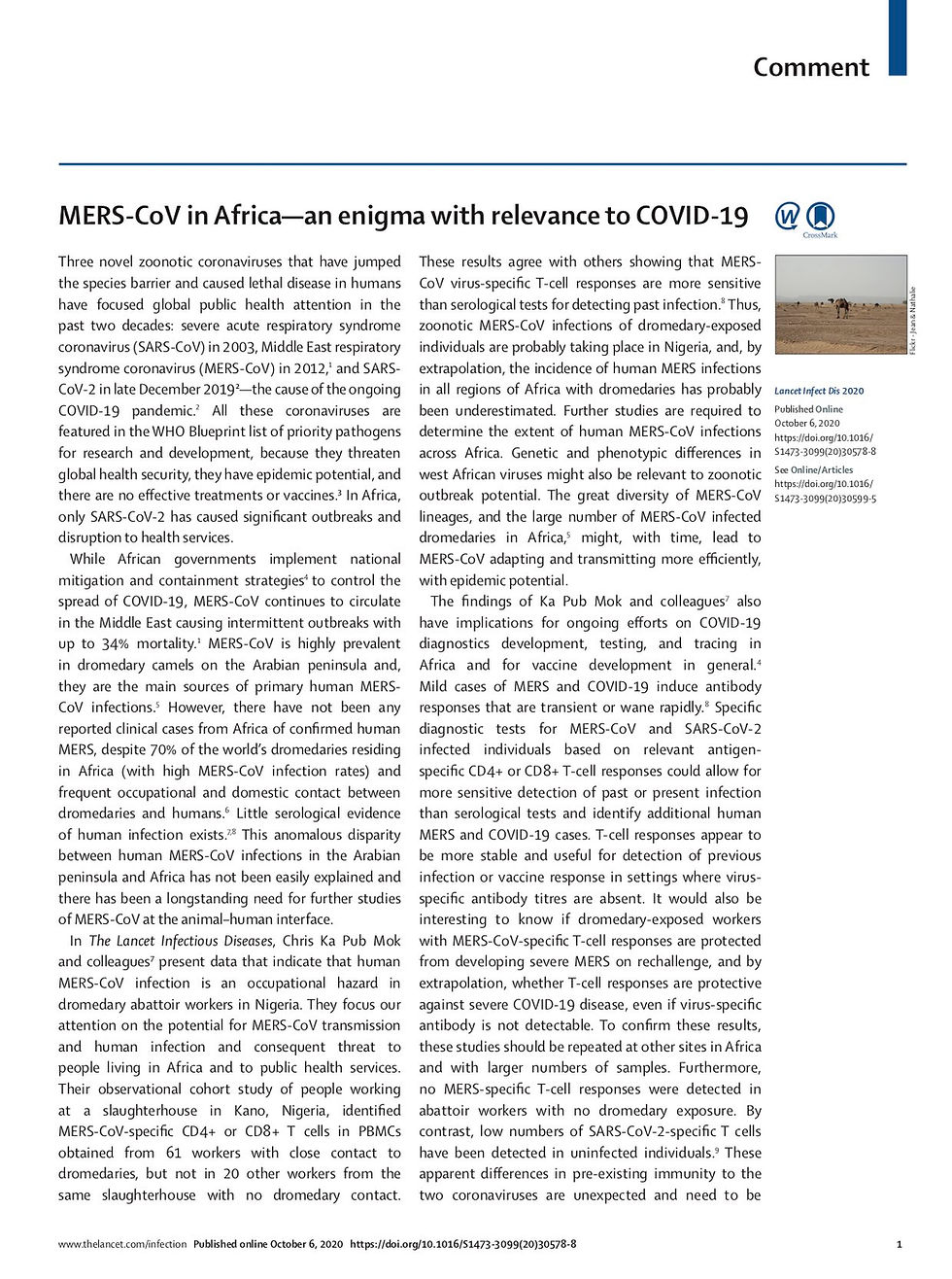02 Nov 2020T-cell Responses To MERS Coronavirus Infection In People With Occupational Exposure
- Nov 2, 2020
- 2 min read
To Dromedary Camels In Nigeria: An Observational Cohort Study
Chris Mok published in The Lancet Infectious Diseases an observational cohort study about MERS infection in people with occupational exposure to dromadery camels in Nigeria, with Malik Peiris, Honorary Director of HKU-Pasteur, and Jincun Zhao, Honorary Professor at HKU-Pasteur and the School of Public Health in the context of a partnership in the Respiratory Diseases Research Center Project in the Greater Bay Area.
Abstract: Middle East respiratory syndrome coronavirus (MERS-CoV) is recognized as one of eight emerging pathogens of greatest threat to global public health, and dromedary camels are the source of human zoonotic infection. The emergence of SARS-CoV-2 highlights the pandemic potential of zoonotic coronaviruses.
Although this zoonotic disease has been restricted to the Arabian Peninsula, the largest number (>70%) of MERS-CoV infected camels are found in Africa. So far, there was only one MERS outbreak reported in Tunisia initiated by a traveler returning from the Arabian Peninsula but no reports of zoonotic disease in Africa. There were six sero-epidemiological studies of camel-exposed or other humans in Kenya, Egypt, Nigeria, and Morocco and only two (two of 1122 in Kenya and three of 476 tested in Morocco) found any evidence of MERS-CoV infection. Our study aimed to address the question that if workers slaughtering dromedaries in an abattoir in Kano, Nigeria are under the risk of MERS-CoV infection.
We found that 30% of 61 abattoir workers with exposure to dromedaries had MERS-CoV specific T-cell responses, but of 20 abattoir workers without exposure to dromedaries and ten non-abattoir workers from Kano, none had such T-cell responses. Drinking both unpasteurised camel milk and camel urine was significantly and negatively associated with T-cell positivity. Interestingly, no individuals with MERS-CoV T-cell responses had detectable antibody suggesting that the results from the serological studies may not truly reflect the prevalence of MERS-CoV infection in Africa. Our findings indicate that there is substantial zoonotic transmission of MERS-CoV to people with dromedary exposure in parts of Africa. The contribution of MERS-CoV to zoonotic respiratory disease remains to be established. Our findings have implications for global MERS-CoV control policy. There is a need to confirm our findings elsewhere in Africa and to include molecular testing for MERS-CoV in the investigation of patients with severe acute respiratory infections in dromedary-exposed populations in Africa.
You can find bellow Professor Stanley Perlman's commentary highlighting the significance of the paper:






